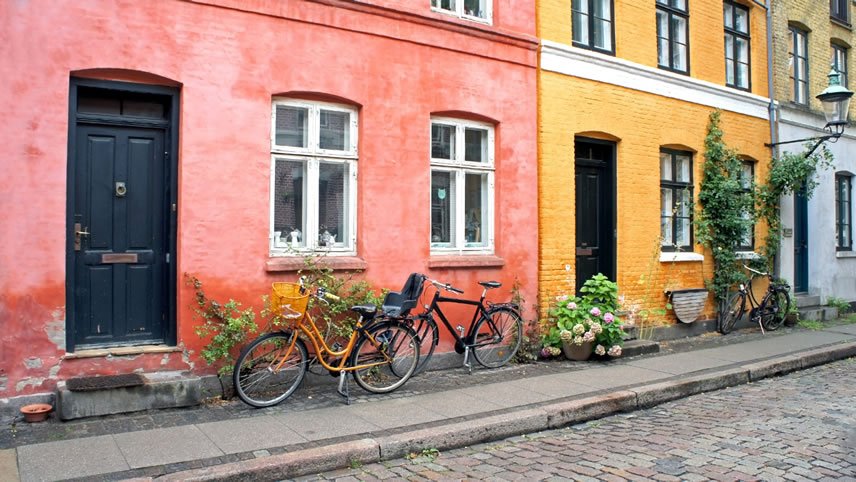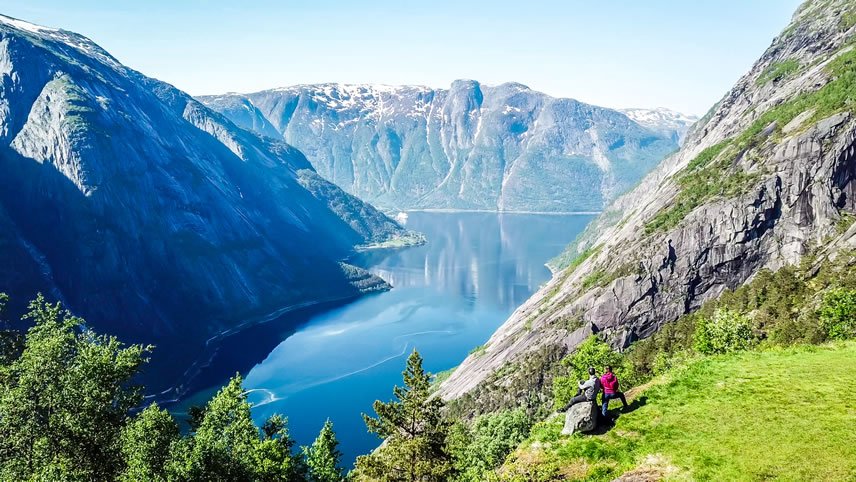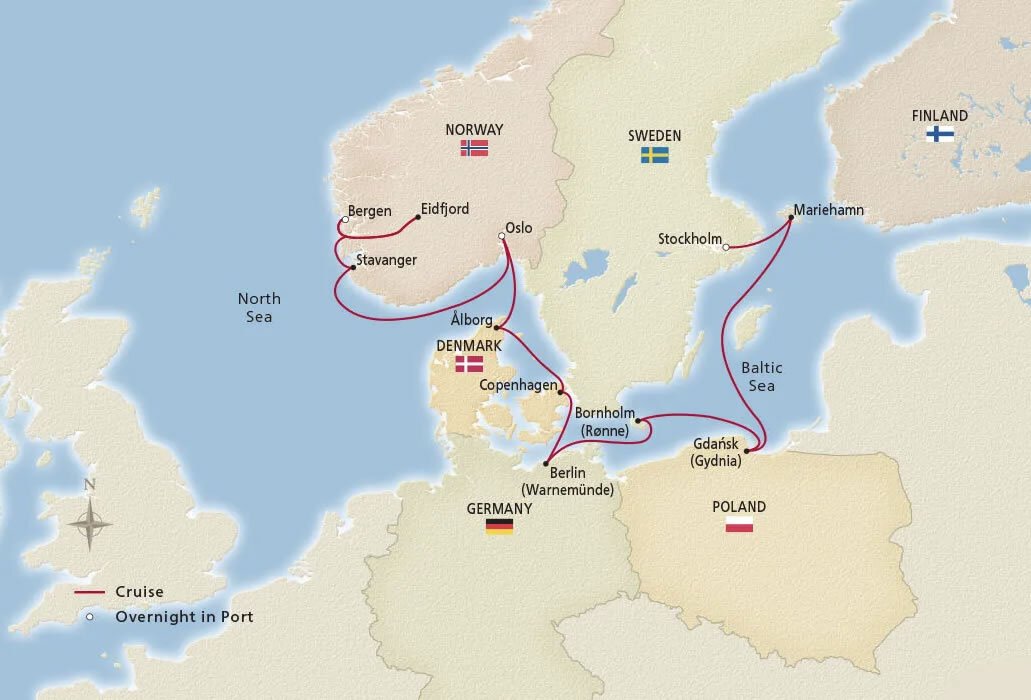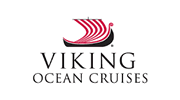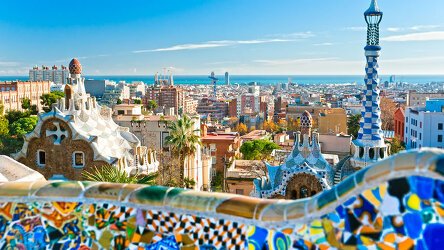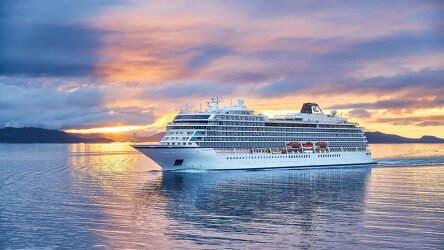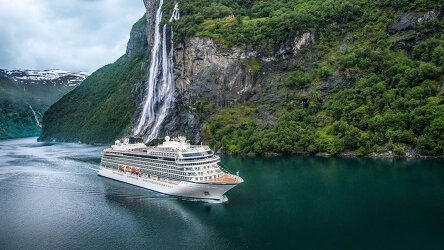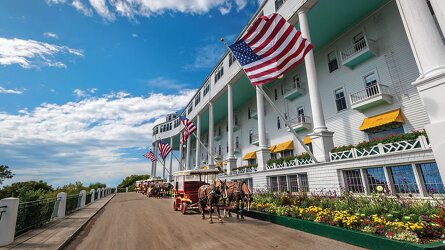Overview
Itinerary
Embark your ship and settle into your stateroom. Bergen is home to the Hanseatic League's only kontor (trading enclave) still in existence. Bryggen wharf, a row of timbered Hanseatic warehouses along a quaint quay, is a UNESCO World Heritage Site. Narrow wooden walkways are flanked by parallel rows of small, vibrantly painted buildings overlooking the picturesque Vågen Harbor. This is perhaps the most charming district of Bergen and a delight to explore, from its tight-knit community of workshops where artisans sell their wares to its cafés where freshly prepared smørbrød, or open-faced sandwiches, are on the menu.
Bergen, an ancient city with deep Viking roots, is nestled between gargantuan snowcapped mountains, magnificent fjords and one of Europe's largest glaciers. Founded in 1070 on what was a Viking settlement, Bergen is the second-largest city in Norway. Not to be missed is a stroll through the Fisketorget, where the fresh catch of the sea awaits—from cod and prawns to local caviar and icy oysters.
The quaint village of Eidfjord is nestled in the heart of one of Norway's most scenic regions. From the Norwegian Sea, the waters of the expansive Hardangerfjord lead to the smaller Eidfjorden and to this charming mountain hamlet. Eidfjord embodies the Norway of every traveler's dream, the gateway to Hardangervidda, Europe's largest mountain plateau of soaring beauty. Wild reindeer roam here, among stunning, treeless moorlands dotted with pools, rivers, streams and the Vøringfossen Waterfall, a 550-foot cascade that plummets into the cavernous Måbødalen Canyon.
Stavanger is home to one of Europe's most interesting Old Towns. The cobblestone streets of Old Stavanger, or Gamle Stavanger, are lined with the continent's highest concentration of wooden buildings that date to the 17th and 18th centuries; approximately 250 are protected by a conservancy formed in the 1950s after developers threatened to destroy these cultural riches. Stavanger profited from an offshore oil drilling boom in recent decades; buoyed by its energy sector, the once-placid city gained a cosmopolitan flair and was honored in 2008 as European Capital of Culture.
Enjoy scenic sailing as we head toward our next destination. Oslo is one of Scandinavia's most vibrant cities, set on a splendid bay amid stunning fjords and hills. It was founded by a Norseman, King Harald III, and has grown over the centuries around the cherished Akershus Fortress. The city not only has a rich Viking past with its close ties to the sea, it also boasts an impressive artistic heritage. Perhaps its most famous painter is Edvard Munch, whose work The Scream is known the world over. But Gustav Vigeland's 200 or so sculptures are the most prominent works in the city, on full display throughout Vigeland Park.
Oslo is Norway's largest and most populous city. The city is nestled between the waters of Oslofjord and the sloping forestlands that stretch into the hinterlands, so a nature walk is never far away. Even in the heart, vast open spaces invite residents to commune with the great outdoors. Norway's most famous is Frogner Park. While a short ferry ride leads to Bygdøy, the green 'Museum Peninsula' jutting into the fjord. The grassy expanse of Tøyen Park is home to an inviting Botanical Garden, while St. Hanshaugen Park affords sweeping city views.
Founded by Vikings in the late 900s, historic Ålborg enjoys a picturesque setting. The best-preserved Renaissance architecture in all of Denmark is here, most famously at the Jens Bang's House, built in 1624. Its clean symmetry helped lay the foundation for today's Scandinavian design. Ålborg, the nation's fourth-largest city, was founded as a trading post. The wealth that poured into merchants' accounts helped build many half-timbered mansions that still stand today. Ålborghus Castle, the seat of the modern-day governors of Northern Jutland, is perhaps the finest example.
Copenhagen charms visitors like a Danish fairy tale. Among the Baltic's most beautiful cities, it began as a fishing village and boasts more than 850 years of history. It has been an important Scandinavian port since the Viking Age and remains one of Europe's most enchanting places, thanks to Tivoli Gardens, the world's second-oldest amusement park, and The Little Mermaid statue sitting in the harbor at Langelinie. Grand palaces also grace the cityscape, including Amalienborg Palace, the royal winter residence, and Rosenborg Castle, home to the Danish Crown Jewels.
After a decades-long postwar rift both between Berlin and the world and within the city itself, Germany's capital has been reunified and undergone a remarkable rebirth as a center of art, culture and great architecture. It is still riding the wave of its newfound energy, and exploring its streets feels akin to browsing a newly opened museum. Risen from the ashes of war, many of its buildings that once stood for division now embrace unity. Among them, the Reichstag parliament building embodies a new transparency with its glass dome, and the city's Museum Island celebrates self-expression and creativity.
Founded as a fishing community on the Danish island of Bornholm around the year 1000, the picturesque village of Rønne has played an important role in the maritime trade of the Baltics. Germans, Swedes and Soviets variously overtook the island throughout its history. Today, Rønne is famed for its half-timbered houses and renowned for its celebrated and talented artisans who uphold a long tradition of glassblowing. Along Laksegade and Storegade streets, historic cobblestone lanes and the low-timbered, red-roofed houses of merchants exude the Rønne of yesterday.
Gdańsk is widely known as the city of glowing amber and Gothic cathedrals. Its luster harkens back to medieval times when it was one of the most prosperous cities in the Hanseatic League, the mercantile powerhouse of the Baltic. The city's rich history is on display in the remarkably restored Old Town, a splendid mix of Gothic, Renaissance and baroque styles—from the royal residence of Green Gate to the 15th-century Artus Court, a merchant's palace. Traditional Polish pierogies or a glass of Goldwasser, a liqueur created here in the 16th century, round out any visit.
Traverse the historic waters that line the coast of Sweden, where maritime battles unfolded in a bid to control Northern Europe. As you sail today, savor a range of international cuisine on board. Choose from a variety of international flavors at the World Café, enjoy al fresco dining on the Aquavit Terrace, or regional specialties in The Restaurant.
The Swedish-speaking city of Mariehamn is the capital of Åland, an autonomous territory under Finnish sovereignty. The archipelago spans approximately 6,700 islands and lies halfway between Finland and Sweden. The compact city center sits between two harbors, and offers a number of restaurants, cafes and shops. A haven for outdoor activities, it is an ideal location to explore the region by land or by sea. The city's Viking heritage is a celebrated treasure; each year, Mariehamn hosts the annual Viking Market, one of the largest of its kind in Scandinavia.
Elegant Stockholm is nestled where Lake Mälaren's cobalt waters meet the Baltic. This stunning cultural capital extends over 14 islands linked by 57 graceful bridges. Hailed as one of the world's cleanest cities, it boasts numerous green parks. The preserved 13th-century Gamla Stan, or Old Town, boasts gabled merchant houses and an array of architectural styles, from the enormous baroque Stockholm Palace to the Art Nouveau Royal Dramatic Theater. Strandvägen is one of Europe's loveliest waterfront esplanades and the ideal place to sample some traditional smoked salmon.
Stockholm is an open book for those interested in Swedish culture and history; the city has one of the highest concentrations of museums in the world. The most prominent is the maritime Vasa Museum, which houses the restored 17th-century ship Vasa. Other homestead reconstructions are spread across the Skansen open air museum on the isle of Djurgården, providing a glimpse of life before the Industrial Age. Art lovers may also linger among the thousands of paintings and handicraft pieces at the National Museum or admire works by Picasso and Dalí at the Moderna Museet. After breakfast, disembark your ship and journey home.
Life Onboard Viking Jupiter
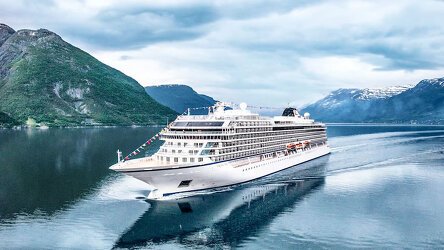
Launched in 2019, the Viking Jupiter is Vikings' newest all-veranda ship, part of a fleet of award winning, state of the art ships incorporating all the comforts & luxuries you would expect from Viking. Read more
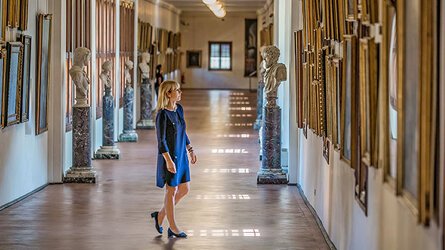
Viking are destination experts. With no casinos or children on board, you can be assured that the focus is firmly on enrichment and education. Read more
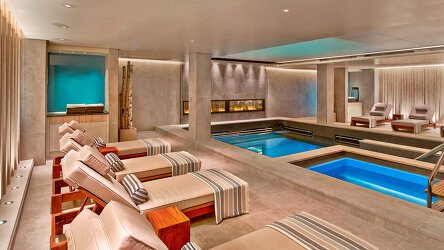
After a day of exploration or just to enhance the relaxation of a day at sea, the on-board Spa will leave you feeling recharged and revitalized. Read more

Viking offer eight on board dining options. Beer, wine and soft drinks are available with lunch and dinner at no additional charge of fee. Read more
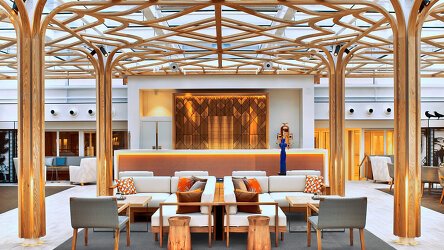
Viking proudly includes all that you need and nothing you do not. A variety of features and services valued at $200 per person per day are standard inclusions in your cruise. Read more

Viking include one complimentary shore excursion in every port of call. Enjoy exclusive entry to cultural treasures and seldom-seen collections around the world. Read more

Brochure
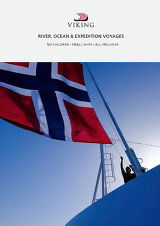
Viking River, Ocean & Expedition Voyages (2025-27)
Availability
 USD
Port charges, taxes and fees included.
USD
Port charges, taxes and fees included.
Viking Cruise $25 Deposits!
Tour & cruises prices are per person. Prices shown have savings applied, are subject to availability and may be withdrawn at any time without notice. Pricing and trip details are correct at this point in time, however are subject to confirmation at the time of booking and are subject to change by Viking. For cruise itineraries, cabin images are sourced from Viking. These should be treated as indicative only. Cabin inclusions, upholsteries and room layout may differ to the image(s) shown depending on the ship selected and your sailing dates.
